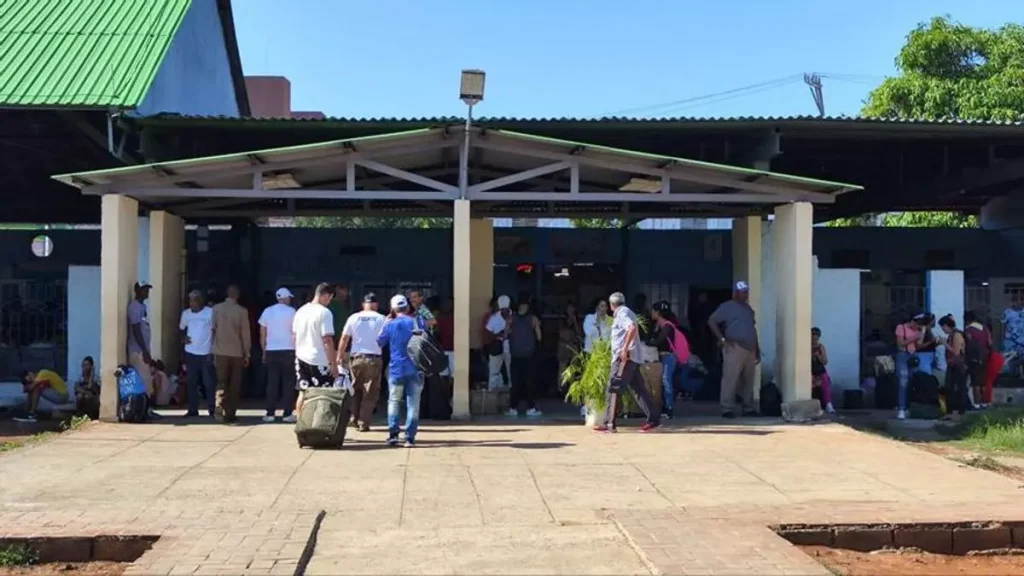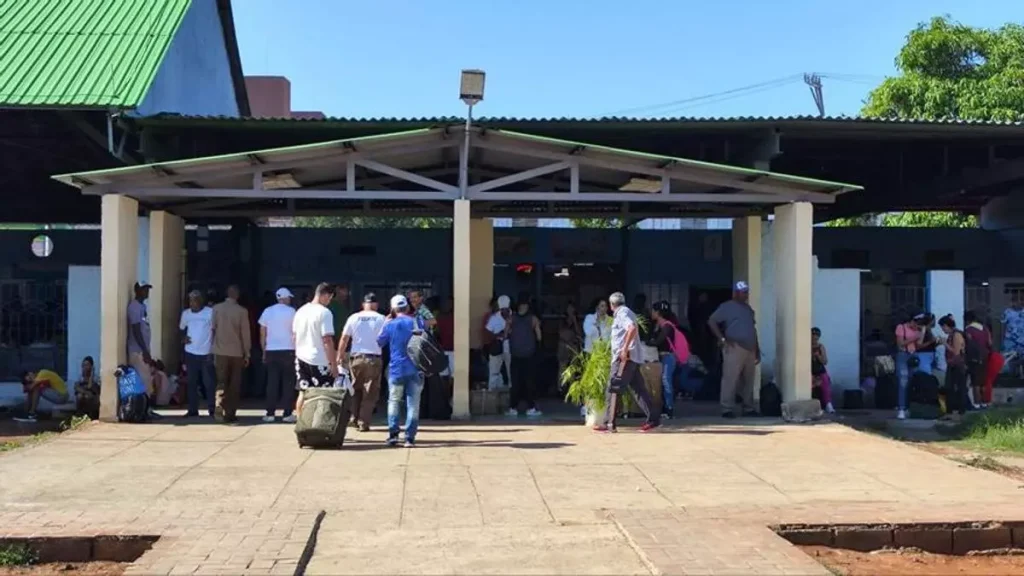They organize in a “network,” know when the police are coming and watch for whistleblowers, says the station boss

14ymedio, Havana, August 24, 2024 — The director of the Villanueva bus terminal in Havana keeps his eye on the buquenques* — the scammers — the “ferocious wolves,” whose intervention makes it possible to have a privileged place on the waiting list. Agile and shady traders, they know the schedules and lack mercy when it comes to defrauding the desperate traveler. Yanniel Pantoja says he is hunting them down and warns that he has the police within reach by telephone.
However, he admits that the situation is beyond his control and cannot be resolved with a simple call. Not even with a fine. His interview given this Friday to Bohemia is a request for help to the authorities from “above” to intervene.
Faced with the helplessness of the travelers, Pantoja provides at least some clues to recognizing the scammers, who prefer to call themselves – not without a certain elegance – “travel managers,” although they aren’t licensed. The official talks about people who “have dedicated their lives” to earning their bread this way. He himself, since he took this job, has witnessed those “careers.”
Even if they have almost absolute power over the resale of tickets, they enjoy scamming people to get money for alcohol and drugs
In Pantoja’s experience, the scammers tend toward alcoholism, and although they have almost absolute power over the resale of tickets, they enjoy scamming people to get money for alcohol and drugs. The manager says that the “effects” of their actions – the scamming and the consequences of their addiction – damage the ambience of Villanueva, which remains tense “24 hours a day, 365 days a year.”
It is supposed to be forbidden for a scammer and a driver – state or private – to negotiate, but that law only works “inside the terminal area.” If the scammer is informed of the itineraries or receives privileged information from the drivers outside Villanueva, Pantoja can do nothing.
The scammers never set a rate; they work on an already established price, which they raise as much as they want depending on demand. “The amount exceeds 1,000, 1,500 or more pesos,” reports the official. “And if the passenger is careless, it is possible that they will take all his money.” They charge in cash and never accept transfers. “They don’t want to leave traces,” he concludes.
Pantoja points out some picturesque details of his antagonists, such as their quality of being “psychologists” – just seeing a passenger they know how much money they can get from him –


